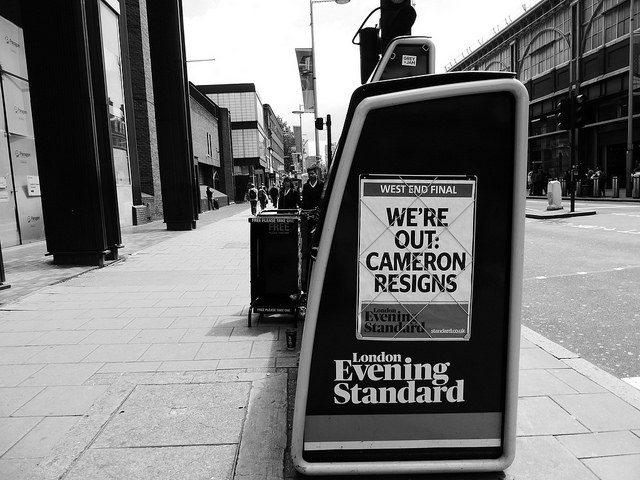
By Ivana Gazibara
Never mind the short-run macroeconomics. Never mind the worrying noises from the far-right across pretty much every corner of Europe. Never mind even the fact that our exit from the European Union will almost certainly leave us poorer over the long-term. I am both worried and sad about all of the above. But there has been enough noise and pontificating on the potential socioeconomic fall-outs of Brexit without me adding yet another voice of doom and gloom. The thing that seems to be missing from the mainstream debate thus far is the question of what Brexit will mean for environmental sustainability. Hardly surprising: Environmental issues were largely overlooked in the debates that raged in the run-up to the referendum.
The trouble with Brexit in the context of most environmental issues is that such issues know no national boundaries. Over the years, the EU gave us some of the world’s most progressive environmental legislation, on everything from air quality to waste management. The U.K. often took a lead in shaping these laws. Now that we’ve decided to go it alone, there is a question mark as to what extent we will maintain those standards, not to mention how we will keep up with emerging ones. Certainly the EU membership brought an element of ‘peer pressure’ (and real pressure, in the form of audits) to bear on environmental matters, which will no longer be there once we exit.
Don’t get me wrong, many of our environmental responses as a country are enshrined in British law. What worries me is that the same leadership (and I use that word loosely) that got us out of the EU, is a leadership that is likely to bring out the more environmentally skeptical and backward elements in national politics. This could lower our ambitions on crucial matters like climate change action. After all, the U.K. signed the Paris Climate Agreement. But neither we nor most European countries have ratified it yet. One decision to watch in the coming months is what we end up doing with the Fifth Carbon Budget, which is ultimately our expression of commitment to the Climate Change Act. Will we or will we not adopt the Committee on Climate Change recommendation of a 57 percent reduction from 1990 to 2030? We most definitely should.
Environmental issues not only cross boundaries, but they also tend to be incredibly complex problems that are tough to solve -- particularly unilaterally. Now that we have pretty much flipped the bird to the wider philosophical notion of working in close collaboration with other EU countries to resolve key challenges, what is the message we are sending about collaborative action at large? Not a great one on the surface of things.
There is also the practical, and horrifyingly complex, task of sorting out the legalities of Britain’s extrication from the EU. In this context of legislative uncertainty – including on environmental laws - business leadership on sustainability will become even more important than in the past. And there’s the danger that the time and effort needed for extrication will take away from the resources needed for implementation of climate action and commitments. Business should act both as a stabilizing force and as a standard-setter of high ambition and real action.
In the storm of uncertainty, one thing is certain: If ever there was a case for some compelling future visioning, across national borders, now is the time.
There is a future in which Britain turns inward and where the myriad uncertainties resulting from Brexit result in a slow-down in -- or even a reversal of -- environmental improvements. In this future, the resulting macroeconomic slide leads to uncertainty and reluctance of investors to commit, including to green industries. Higher poverty rates and lower living standards lead to the sorting out of other priorities first. New social movements, from the radical left to anti-immigration populism, focus the lens on issues like social inequality. Many environmental protection laws could come to be seen simply as ‘red tape’ to be rolled back post-Brexit. This may also, perhaps, be a future where we are talking about just England, rather than Great Britain, being outside the EU.
However, another possible future exists -- one in which Britain takes a front foot on tackling environmental challenges, flying the banner for both climate leadership and collaboration with other state and non-state actors, irrespective of a lack of formal membership in the EU. In this future, young people can channel their anger and frustration about the referendum result into a much more active and activist approach to politics, and accelerate the U.K.’s transition to a low-carbon, resource-efficient and sustainable economy. This economy would derive social and economic value from ‘green growth.' The U.K.’s relationship to the EU would be modeled on, say, Norway’s: close ties, and broad alignment on many issues and values, without formal membership.
I choose the second future. Although a lot will change as a result of the U.K. leaving the EU, our dependence on shared resources and our common vulnerability to climate change will not.
Ivana Gazibara is Head of Futures at Forum for the Future.
TriplePundit has published articles from over 1000 contributors. If you'd like to be a guest author, please get in touch!














